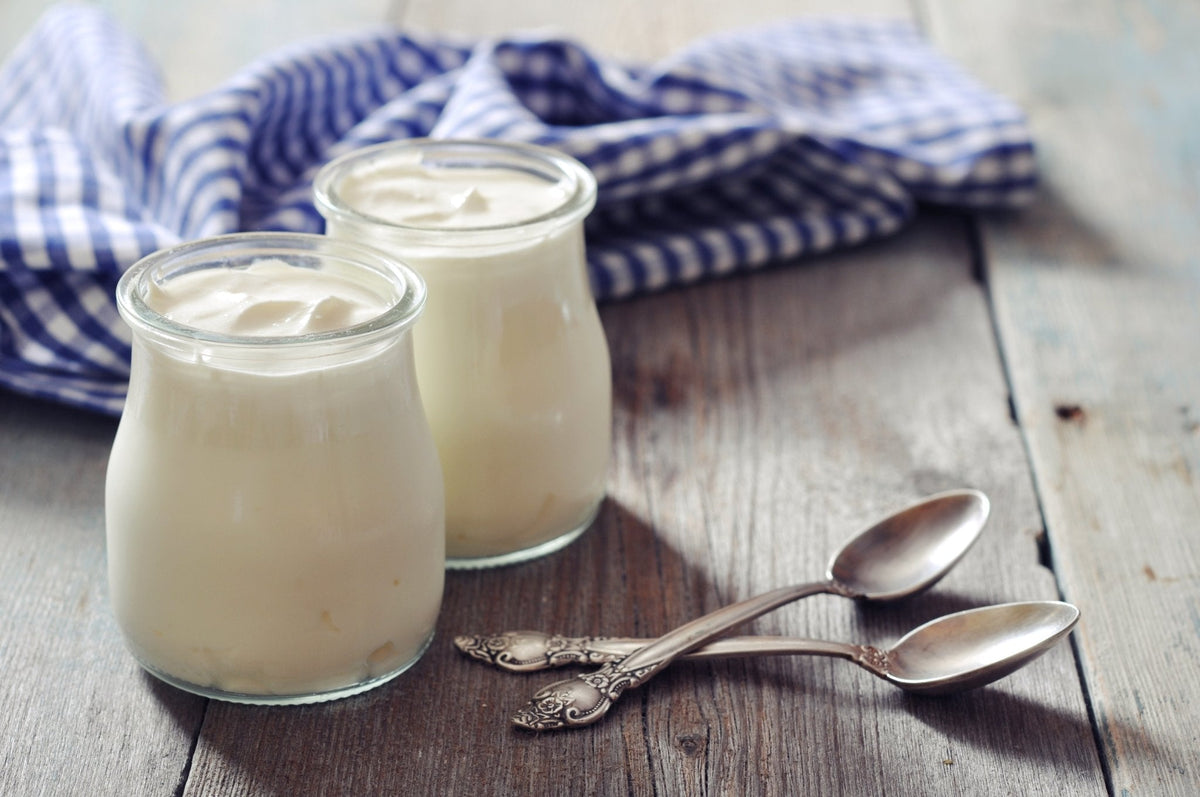When you hear the word probiotics, you might think first of yogurt. Yogurt is often touted as a health food and a good source of probiotic bacteria to improve digestion and immune function.
There’s certainly a lot of truth to that, but it’s not the whole story. Yogurt does indeed contain some probiotic bacteria, but those bacteria are less beneficial than you think. Most importantly – not all yogurts are the same.
Why Do You Need Probiotics Anyway?
First, a quick recap! Your gut is home to trillions of microorganisms that include both good and bad microorganisms.
The ‘good’ bacteria play important roles in maintaining your overall health. They’re involved in digestion, immune system function, hormone production, and much more.
Supporting your gastrointestinal environment by introducing good bacteria into your digestive system will help to keep these bacteria in good shape, which means they can do their job properly. One of the best ways to do this is by consuming probiotic bacteria.
So, what are probiotics?
Probiotics are ‘friendly’ bacteria that provide numerous benefits to your health. They support your body’s existing population of good bacteria and help them to function more efficiently.
Probiotics are available in supplement form but are also present in a range of fermented foods, including yogurt, kimchi, kefir and sauerkraut. (1)
Of course, you can’t expect something to improve your health just because it contains probiotic bacteria. It all comes down to the amounts of probiotic bacteria in the product, the variety of strains, whether they survive passage through your stomach, how ‘live’ the bacteria are, and many other factors.
In most cases, probiotic supplements are more effective than yogurt for providing the health benefits you require. Here’s why.
Why Yogurt May Not Be Enough
Yogurt is a great health food with plenty of nutritional benefits, including calcium and protein. It’s even more famous for being a ‘probiotic food’ – and yes, it does indeed contain probiotic bacteria as a result of the fermentation process.
However, while yogurt can provide health benefits to some degree, it simply can’t be relied upon as an effective source of probiotics.
There are several factors that can cause yogurt to fall short of delivering the quality of probiotics that would actually benefit your gut.
1. An uncertain collection of strains
Every yogurt contains Lactobacillus bulgaricus and Streptococcus thermophilus, but the other strains in your yogurt are not standardized in the same way that probiotic supplements are. They may or may not include various forms of Lactobacillus, Bifidobacterium, or even yeast.
Every species and strain of probiotic bacteria has its own unique role to perform in your body. You may be missing out on some of the most beneficial strains if you stick to yogurt.
2. No standardized potency
Probiotic supplements are carefully standardized to contain certain amounts of each strain of bacteria. That means that you can reduce or increase your dose as necessary. For example, if you start a course of antibiotics you might find that doubling your daily probiotic dose will help to reduce the digestive side effects.
3. High Sugar Content
Many of the yogurt products you’ll find in supermarkets are not health foods at all; they’re just sweet treats loaded with added sugar, high fructose corn syrup, and other undesirable ingredients that may have more of a detrimental effect on your gut than a beneficial one. (2)
The strains of probiotic bacteria in these yogurt products are supposed to benefit conditions such as indigestion and irritable bowel syndrome (IBS), but the high sugar content may completely cancel out those benefits.
4. High levels of histamine
Yogurt and other fermented dairy products tend to be quite high in histamine. For histamine-sensitive individuals, large amounts of dietary histamine can cause hives, itching, and inflammation.
If you suspect that you are histamine-sensitive, probiotic supplements are a way to boost your gut health without increasing your exposure.
5. Poor Survivability
Your yogurt may contain lots of probiotic bacteria, but how many of those will survive the passage through your stomach?
Your stomach is a highly acidic environment, and this acidity is a crucial part of your digestion and immunity. But that very same acidity will destroy the vast majority of probiotic bacteria in your food.
Probiotic supplements can use technologies like delayed-release capsules and time-release tablets that protect bacteria on their journey to the gut.
Yogurt May Not Be The Right Choice For Your Gut
Bottom line? Your pot of yogurt, while certainly beneficial for your health, may not deliver the boost to your gut flora that you thought it did.
Even yogurts with “Live and Active Cultures” will struggle to deliver those bacteria safely to your gut, and you have little control over the strains and quantities of bacteria that they contain.
While it’s certainly worthwhile to eat yogurt as a healthy snack and a good source of protein, you’re much better off getting your daily dose of probiotics from a quality supplement.
Our probiotic uses patented time-release tablets that deliver 15 times more bacteria past stomach acid, compared to other probiotic supplements. We include 15 billion CFUs of bacteria and 12 different strains, and we use rigorous quality control to ensure that every batch we produce meets the very highest standards.

